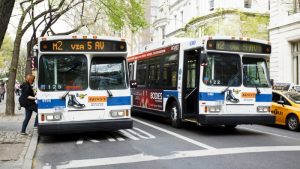The Chicago Transit Authority (CTA) has begun using artificial intelligence-powered security system cameras to detect guns.
Chris Mattmann has been named University of California, Los Angeles’ (UCLA) first chief data and artificial intelligence officer. Mattmann is not only the first chief data and artificial intelligence officer at UCLA, but the first at any University of California campus.
The Iowa Department of Education announced that 41 elementary schools will deploy an AI-powered tutor to provide personalized reading education support for students.
A bipartisan pair of representatives introduced the National Science Foundation (NSF) AI Education Act in the House last week, offering a companion to the Senate bill that was introduced earlier this year.
The National Association of Counties (NACo) is piloting an Artificial Intelligence (AI) Leadership Academy, an online program to equip frontline county government leaders with practical knowledge and tools.
The City of Boston is working with Google’s Project Green Light team to optimize traffic signal timing and improve traffic flow in highly congested areas.
The Alameda-Contra Costa Transit District, Calif., (AC Transit) announced that 100 buses will be equipped with artificial intelligence (AI)-powered cameras to detect vehicles illegally stopped or parked at bus stops.
California has released fundamental and technical generative artificial intelligence (GenAI) training for state employees. The new training is the result of California Gov. Gavin Newsom signing the Executive Order (EO) on Generative Artificial Intelligence (GenAI) in 2023.
The Delaware Division of Motor Vehicles (DMV) has added new functionality to its online services in the form of Della the Chatbot.
Generative AI (GenAI) is swiftly reshaping the academic landscape, prompting higher education institutions to engage in discussions about how to effectively integrate the technology into their operations.











